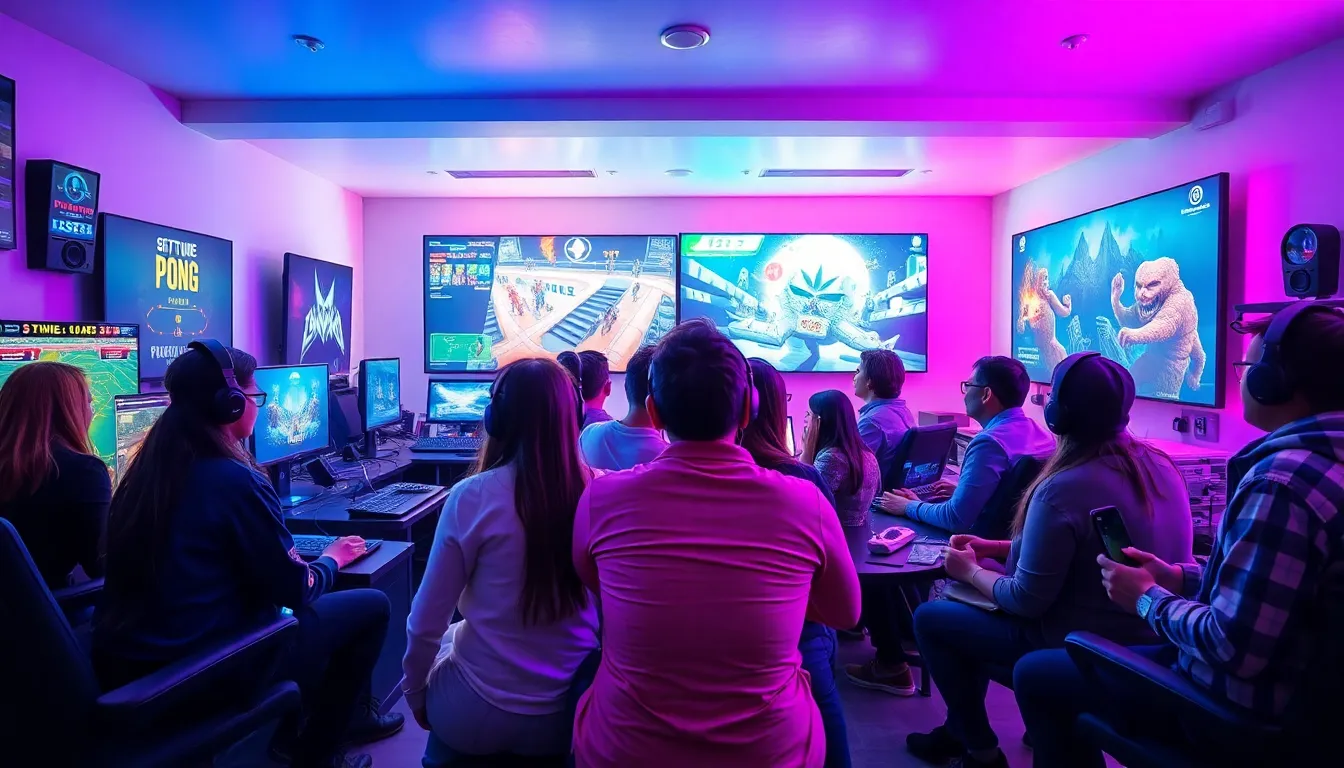When we think of video games, words like “escapism” or “entertainment” come to mind. But have you ever thought about how gaming has shaped our culture and society? Strap in, because we’re about to jump into that very journey, where pixels corral emotions and narratives intertwine with the realities of today. From the retro classics to indie gems, gaming wasn’t just a pastime: it’s an evolving art form deserving of exploration.
Table of Contents
ToggleThe Evolution of Gaming Culture

Key Milestones in Video Game History
In the beginning, gaming was a simple affair. From early titles like “Pong” and “Space Invaders,” each pixel contributed to what would flourish into a multi-billion dollar industry. As technology advanced, so did the complexity of games. The 8-bit era gave way to 16-bit, then to 3D graphics that transformed gameplay dynamics. Titles like “Super Mario Bros.” and “Doom” not only lifted the standards for gameplay but also crafted communities around them.
Impact of Gaming on Society
What’s truly remarkable is the societal shift that games have inspired. Gone are the days when gaming was a niche hobby. Today, it promotes social interaction and fosters creativity. Educational tools harness gamification to enhance learning. The rise of tournaments has transformed casual participants into professional gamers, with millions tuning in to watch live streams. Now, forget about the stereotype of the lonely gamer: gaming today is as communal as a potluck dinner.
The Rise of Indie Games
Notable Indie Titles to Explore
Indie games are the underdogs of the gaming world. With fewer resources and smaller teams, developers pour passion into creating unique experiences. Titles like “Journey,” “Celeste,” and “Hollow Knight” show that sometimes innovation doesn’t come from big studios. These gems push boundaries, telling stories that resonate on an emotional level. They have reclaimed gaming’s soul, reminding players that originality can outshine graphics. Exploring indie titles isn’t just about gaming: it’s about supporting creativity.
Community Engagement and Online Gaming
The Role of Social Media in Gaming
Social media has revolutionized how gamers connect. Platforms like Twitter and Reddit create spaces for discussion, enabling players to share experiences and tips. Want to know the best loadouts in your favorite FPS? You’re just a hashtag away. It’s also a breeding ground for news, leaks, and memes, keeping the community engaged and entertained.
Streamers and Content Creators
Then there are the streamers and content creators, each carving out their niche in the gaming universe. Whether it’s speedrunning, walkthroughs, or comedic commentary, they offer a personal touch, allowing thousands to feel connected to a shared passion. Platforms like Twitch and YouTube have made it possible for anyone to be a personality. Who doesn’t love tuning into a live stream to catch those thrilling moments or epic fails? It’s a new age of fandom.
Looking Ahead: The Future of Gaming
Emerging Technologies in Gaming
So, what’s next on the horizon? With virtual reality (VR) and augmented reality (AR), the gaming experience is about to get a major upgrade. Imagine stepping into the game world and interacting as if you’re really there. The potential for immersion is limitless. Developers are experimenting with neural interfaces too, creating possibilities that blur the lines between gameplay and reality. The future looks vibrant and awe-inspiring.
Trends to Watch in the Gaming Industry
Trends play a crucial role in shaping the gaming landscape. Cross-platform gaming is an increasing expectation among players. Gone are the days of console wars: it’s about community now. Another significant trend is cloud gaming, allowing players to access high-quality games without the need for expensive hardware. The rise of subscription models is changing how gamers consume titles, offering access to vast libraries for a flat fee. As the industry evolves, keeping an eye on these trends is essential.
The integration of Blockchain technology is also making waves, promising true ownership of digital assets. Keeping up with these trends isn’t just for seasoned gamers: it’s a must for anyone wanting to stay relevant in this dynamic environment.


